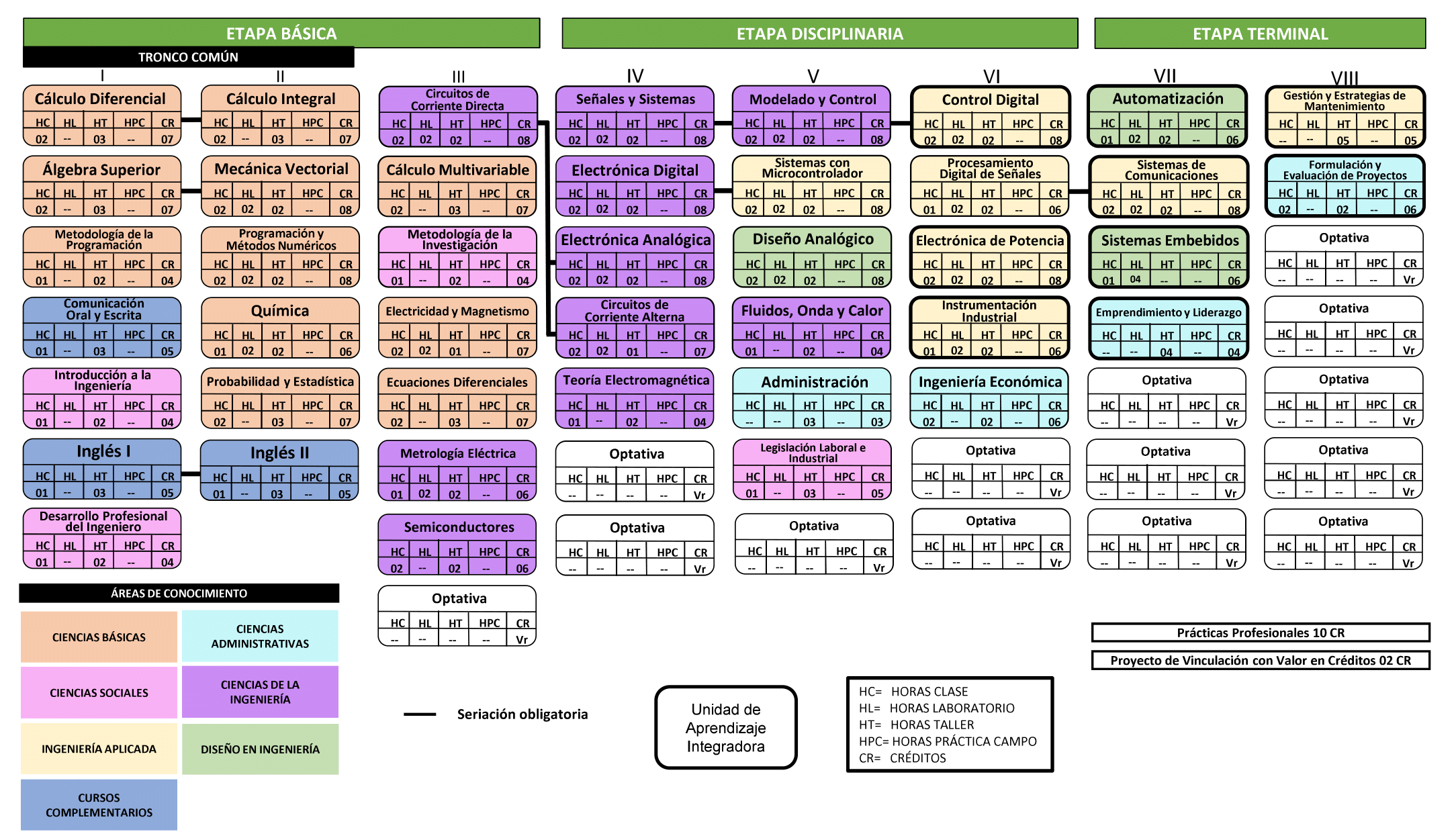CURRICULUM
The structure of the curriculum comprises the following sections: entry profile, graduation profile, professional field, characteristics of the learning units by training stages, characteristics of the learning units by areas of knowledge, curriculum map, quantitative description of the curriculum, typology of the learning units and equivalence of the learning units.

ADMISSION PROFILE
Applicants to enter the Electronics Engineer educational program must have the following knowledge, skills, attitudes, and values:
- KNOWLEDGE
- Algebra and arithmetic
- Geometry and trigonometry
- General physics
- SKILLS
- Oral and written communication
- Reading comprehension
- Interpretation of physical phenomena
- Problem solving
- Organization
- ATTITUDES
- Discipline
- Creativity
- Interest in science and technology
- Proactivity
- Perseverance
- Willingness to work collaboratively
- VALUES
- Responsibility
- Honesty
- Respect
GRADUATE PROFILE
The electronics engineer is a responsible professional, with a multidisciplinary approach, committed to continuous learning. It has knowledge, skills, and attitudes to plan, design, implement, maintain, manage, and evaluate electronic systems that are applied in the solution of engineering problems, thus contributing to the satisfaction of needs for sustainable development in the economic, environmental, and social contexts, at a national and international level.
The Electronics Engineer shall be competent to:
- Formulate, manage, and evaluate electronics projects by applying knowledge, methodologies, techniques, and tools of electronic engineering for the optimal management of project resources, with a professional attitude, organization, and culture for teamwork.
- Design and integrate electronic systems, through the analysis of the corresponding requirements and the application of methodologies, for the solution of electronic engineering problems responsibly, with a creative attitude and a sense of permanent training.
- Build, implement, and validate electronic systems through compliance with the corresponding technical specifications and standards for solving problems in electronic engineering, with ethical responsibility, teamwork, and effective communication.
- Operate, maintain, and administer electronic systems through operation, maintenance, and current regulations for efficient use, with ethical responsibility, a sense of permanent training, and effective communication.
CAREER FIELD
The Electronics Engineer will be able to work in:
- Private sector:
- Technology development companies
- Entertainment industries
- Manufacturing industries in the sector:
- Electronic
- Electric
- Telecommunications
- Automotive
- Aerospace
- Doctor
- Power Generation
- Alimentary
- Agricultural
- Public sector:
- Ministry of Communications and Transport
- Healthcare sector
- Parastatal units
- Education
- Research Support.
- Freelancer:
- Technology Advisor
- Project development
Para más información:
Responsable del Programa Educativo de Ingeniero en Electrónica:
✉ Coordinación Ingeniero en Electrónica
Facultad de Ciencias Químicas e Ingeniería. UABC. Campus Otay: Calzada Universidad 14418 Parque Industrial Internacional Tijuana B.C. 22427 Tel.979 75 00.
